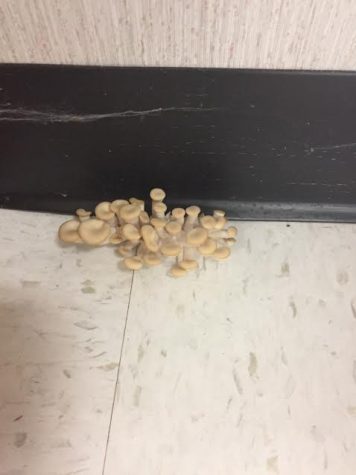Pham wins international haiku award
おめでとう!
Congratulations! Over the summer, sophomore Natalie Pham won a Special Superior Award in the ITO EN New Haiku Contest. The haiku contest is sponsored by ITO EN, a Japan-based green tea company. Winning haikus are printed on the “Oi Ocha” tea boxes.
“I entered the contest because it was first class work and we had the option to send it in so I thought, what are the chances of me passing so I just took a chance,” said Pham. “I just thought of the things I like about winter [to] see what would fit. I wrote about snow because I wanted it to snow around that time.”
Pham’s Japanese teacher, Yoko Thakur, submitted Natalie’s and 27 other students’ poems to the competition.
“[The contest] was part of my Japanese curriculum,” said Thakur.“I suggested all of my students enter.”
Pham entered the Japanese haiku division of the ITO EN New Haiku Contest, which is open to anyone. The haikus, however, were required to be in Japanese. The contest garnered over 1.7 million entries, 700,000 of them from Japanese high school students.
“At the first selection, 8,000 haikus were selected,” said Thakur. “Out of those that passed the first selection, at the second selection 2,000 were selected [for the Special Superior Award].”
In addition to the Special Superior Awards (“Kasaku Tokubetshu sho” in Japanese), one Prime Minister’s Award and 6,000 Superior Awards were given. Pham was the only non-Japanese winner.
“Then they decided the finalists on July 7 [and] I found out that I was one of the finalists on July 11,” said Pham. “When I was told I was a finalist, I was…surprised…[and] even honored.”
On October 2, Pham, her family, several students and the World Language teachers attended a ceremony in Pham’s honor.
“[Foreign Language Administrator John Thorson] presented me with a certificate and the book of all the finalists’ poems,” said Pham. “In spring, [ITO EN] will send us a pack of the tea they sponsor with my poem on it.”
In Japanese, Pham’s haiku reads, “Yukigafuru, kogoeru daichi, daisukida.” It can be translated to English as, “Snow is falling, the ground is frozen, I like this season.”
“Through her haiku, she was able to convey her feeling of the winter to the audience,” said Thakur. “When I read it, I almost heard the sound of frozen ground.”
Although Pham does not plan on entering the contest this year because she no longer takes Japanese, she is glad to have entered.
“It made [me happy] that they picked my poem out of 1.7 million other haikus,” said Pham. “I learned that the smallest things can have a lot of meaning.”










